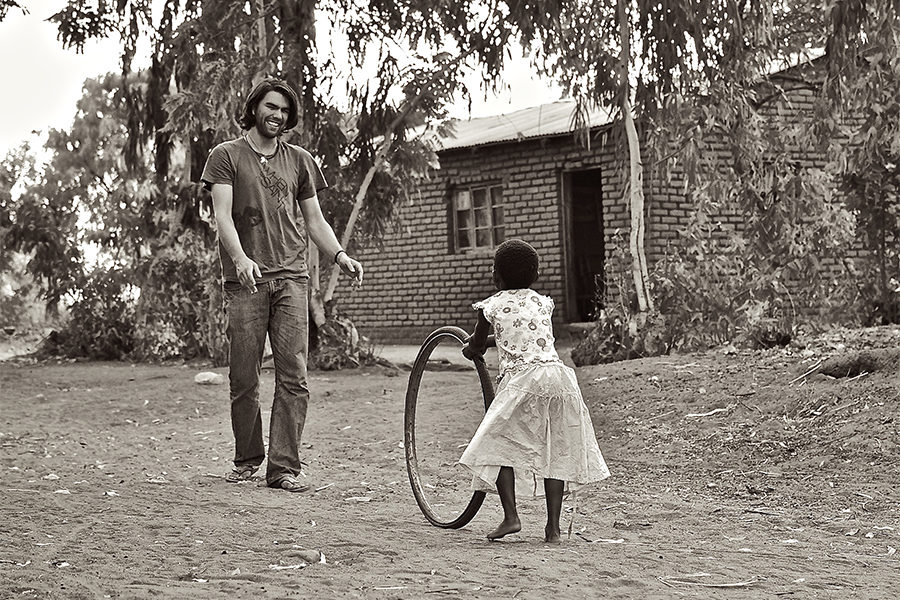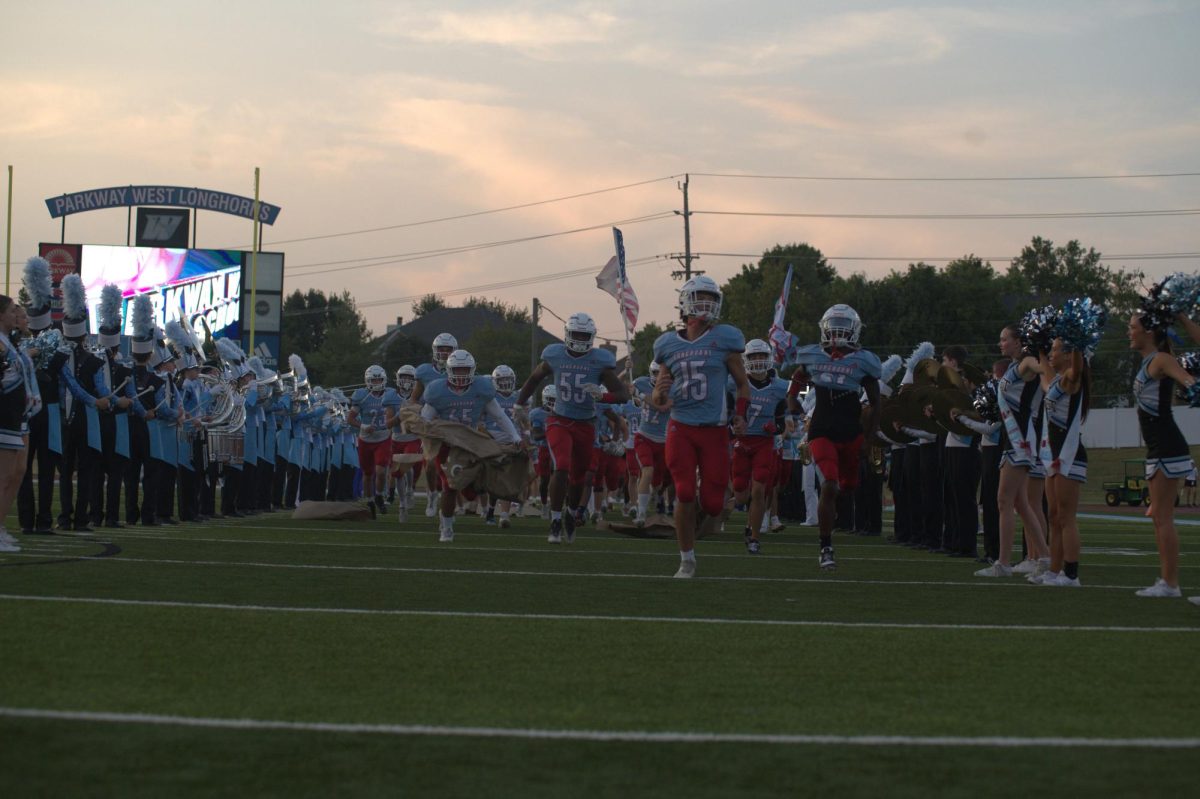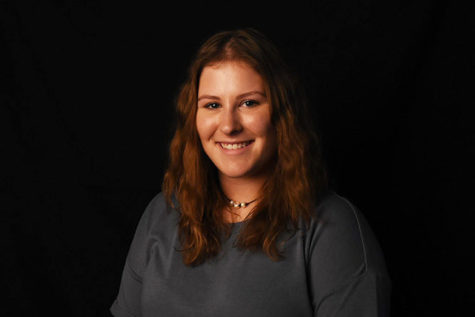Since graduating in 2006, alumnus David Peterka has developed a passion for advocating for equality through the awakening of his faith in God. Dedicating his life to this mission, Peterka created a safe house in Malawi for sexually abused girls.
“Shortly after graduating, some people from another faith asked me a lot of questions about what I believe and why I believed it. I did not have the answers for them, so I read through the entire Bible in five months,” Peterka said. “One of the greatest themes throughout all of scripture was God’s heart for the oppressed and marginalized, as well as God calling those who believe in him to protect, rescue and speak up on their behalf.”
Peterka was unaware of the different forms of injustice happening globally until after he graduated high school.
“A lot changed very quickly for me around the age of 18. I attended a conference on the issue of human trafficking and sexual exploitation, viewed a documentary on the issue of child soldiers in northern Uganda and took my first trip to Africa,” Peterka said.
In January 2009, while he was 21, Peterka entered a fast where he did not eat any food for 21 days and nights with the goal of figuring out what he wanted to do with his life.
“I decided to devote this time of fasting to ask my creator what it is that he created me for. After staying up all night in my basement on the last night of this fast, I believe he whispered [to me]. Everything that I am doing with my life right now is a result of this one night,” Peterka said.
After that experience, Peterka officially founded When the Saints in November 2011 hoping to raise awareness about sexual exploitation and eventually provide a solution. Prior to his first trip to Malawi, Peterka said that this country appeared randomly in his life six times. By the fourth time Malawi was mentioned, he knew that it could not be a coincidence.
“From there we set up a board of directors who helped make decisions. I entered into another two years of praying and waiting for direction. All of a sudden this country called Malawi kept coming up in my life, so my father, my pastor and I took a trip there in March of 2011. We discovered a deep need for a safe home for girls who had been sexually abused or forced into prostitution. This lined up with what we felt we were meant to do there,” Peterka said. “The day that I left for my first trip to Malawi was the scariest day of my life. Everyone thought I would be so excited, but for me, I was terrified of failing. Malawi was pretty much the opposite of what would be considered a global hotspot for human trafficking and sexual exploitation.”
While in Malawi, Peterka worried that he would be unable to find someone he could partner with to make a change, or that there was no need for a safe home.
“Sure enough, before we had even spent four hours in the country, we met a partner who had spent the last 14 years of their life desperately trying to open a safe home exactly like the one we felt led to build there,” Peterka said.
As Peterka continued to immerse himself in Malawian culture, he made sure that the people of Malawi were involved in leading the safe home.
“Malawians are far more capable than someone coming from outside their country in facing challenges [due to] their understanding of the culture and language of Malawi. It is vitally important to us to have ownership be in the hands of Malawians, [which is why] our safe home is run by 13 staff members that are all Malawian. We see so much value in [working] alongside one another rather than having one be in power over the other,” Peterka said. “I am not sure how much I can speak to the ways that Malawi is different as a result of us coming, but what I can share is just how much I have been transformed as a result of being a part of this work. It has been outrageously humbling for me as I have experienced profoundly transformative things through the hospitality, generosity, sacrifice, joy and interconnectedness of the Malawian people.”
Normally in Malawi, the only extent of care a girl is able to receive after being sexually abused is a maximum of one night in the victim support unit. Girls are sometimes told to return back to the places where they are being regularly abused. Through his safe home in Malawi, Peterka hopes to be able to provide better care for sexually abused girls.
“Within our small community, we partner with the police, and they refer cases of sexual abuse to us. With our limited capacity of 20 girls, we tragically find ourselves having to turn away four to six cases every month simply because we just don’t have the space [in a community of 16,000 people and in a country with 15 million people],” Peterka said. “As a result of others seeing this deep need, we have been able to find a number of people who have gone above and beyond in order to help get this safe home up and running. For us, the most important step was to work with locals who had the passion. Then we simply gave them the resources they needed to accomplish what they dreamed of.”
Peterka had a task he wanted to accomplish throughout the course of his life that he was able to accomplish through his work in Malawi. He wanted to save that life of another human being.
“A five-year-old girl came to us and had been experiencing sexual abuse at the hands of her stepfather for almost a year. Her stepfather ended up getting arrested and she spent a whole year undergoing trauma counseling in our safe home. On the day that I went with our staff to reintegrate this young girl back into her home, something very emotional happened to me,” Peterka said. “Her grandmother approached me and slowly told me about how she had a second granddaughter who was 3 years old. She ended up losing her life as a result of the traumatic sexual violence she endured at the hands of that same stepfather. She went on to tell me ‘if it were not for the ministry of When the Saints I believe that my other granddaughter would have followed her to the grave.’ Being a part of the work that saved this young girls life is what I can confidently say has been our greatest accomplishment.”
To further accommodate more victims, Peterka developed three goals for the future, including more housing, sustainability and mentorship for men.
“We desire to build more dorm homes on our site so that we can have a capacity of at least 60 girls. At that point, we would never have to turn away another girl from our community. We [also want to make] the safe home completely sustainable. Through various income generating activities, we envision the same amount of profits coming in that would match the expenses required to run the safe home. Some of these activities include the sale of eggs from our chickens, milk from our cows and produce from our garden and orchard. Then, as we continue to fundraise here in the US, those funds will be able to go toward building a second, third and who knows how many safe homes across the country,” Peterka said. “Our dream is to effectively love those who may be considered our enemy. We hope to have a large and successful mentorship program for men who struggle with sexual addiction so that we can help them walk in sexual integrity. We have explored a few various forms of outreach with amazing results, and hopefully by the end of this year will have an ongoing discipleship program for men.”
Through his evaluation of sexual exploitation in Malawi, Peterka came to the conclusion that it is just as important to relieve men of the shame of oppression as it is to aid women and young girls who have been oppressed.
“If we only focus on helping young girls out of a situation where they are enslaved for the purpose of sexual abuse, then something tragic would happen. There will still be the same number of men wanting to abuse the same number of girls, and indirectly, as a result of the success of our ministry, traffickers may end up going into villages to bring girls who would not have otherwise been abused into the city to fill the empty positions we created,” Peterka said. “We have discovered that there is only one truly sustainable solution to seeing an end to sexual abuse in the world, and it is found in the hearts of men being transformed and set free. If men are no longer abusing young girls, then maybe one day there would no longer be a need to have rehabilitative safe homes. Hatred and bitterness are nasty things that repetitively harm those who grasp them. When we allow forgiveness to seep into our hearts, freeing and beautiful things begin to happen.”
Believing in the equality of all humans, Peterka hopes to continue to chip away at the prejudices and injustices faced by both genders, especially in Malawi.
“We believe that to some capacity every human being finds their identity in what other people think about them. When we do this, it is a form of exploitation where we are attempting to take something from someone that they are never meant to give us. Our identity and value can ultimately only be discovered in one eternal being. [God] says that in our hearts when we look at others as someone we can use to get something from, it is no different than doing something like committing adultery,” Peterka said. “We can all participate in the promotion of either a spirit of freedom or enslavement with our everyday interactions with members of the opposite sex. Our desire is to invite everyone into the ending of this injustice as they seek to honor, respect and add value to members of the opposite sex with their everyday interactions.”
If you want to learn more or donate to When the Saints, click here.




![Sophomore Shree Sikkal Kumar serves the ball across the court in a match against Lindbergh. Sikkal Kumar has been a varsity member of the varsity girls’ tennis team for two years, helping her earn the number two rank in Class 2 District 2.“When matches are close, it’s easy to get nervous, but I [ground] myself by[staying] confident and ready to play,” Sikkal Kumar said.](https://pwestpathfinder.com/wp-content/uploads/2025/11/DSC2801-1200x798.jpg)
![Dressed up as the varsity girls’ tennis coach Katelyn Arenos, senior Kate Johnson and junior Mireya David hand out candy at West High’s annual trunk or treat event. This year, the trunk or treat was moved inside as a result of adverse weather. “As a senior, I care less about Halloween now. Teachers will bring their kids and families [to West’s Trunk or Treat], but there were fewer [this year] because they just thought it was canceled [due to the] rain. [With] Halloween, I think you care less the older you get,” Johnson said.](https://pwestpathfinder.com/wp-content/uploads/2025/10/DSC00892-1-1200x800.jpg)
![Focused on providing exceptional service, sophomore Darsh Mahapatra carefully cleans the door of a customer’s car. Mahapatra has always believed his customers deserve nothing less than the best. “[If] they’re trusting us with their car and our service, then I am convinced that they deserve our 100 percent effort and beyond,” Mahapatra said.](https://pwestpathfinder.com/wp-content/uploads/2025/10/DSC_0018-1200x800.jpg)
![Sophomore Aleix Pi de Cabanyes Navarro (left) finishes up a soccer game while junior Ava Muench (right) warms up for cross country practice. The two came to Parkway West High School as exchange students for the 2025-2026 school year. “The goal for the [exchange] program is to provide opportunities for both Parkway students and our international exchange students to learn about other cultures, build connections and become confident, capable, curious and caring — Parkway’s Four C’s — in the process,” Exchange Program Lead Lauren Farrelly said.](https://pwestpathfinder.com/wp-content/uploads/2025/10/Feature-Photo-1200x800.png)
![Leaning on the podium, superintendent Melissa Schneider speaks to Parkway journalism students during a press conference. Schneider joined Parkway in July after working in the Thompson School District in Colorado. “My plan [to bond with students] is to get things on my calendar as much as possible. For example, being in [classes] is very special to me. I am trying to be opportunistic [meeting] kids [and] being in [the school] buildings. I have all the sports schedules and the fine arts schedules on my calendar, so that when I'm available, I can get to them,” Schneider said.](https://pwestpathfinder.com/wp-content/uploads/2025/09/IMG_5425-1200x943.jpeg)
![Gazing across the stage, sophomore Alexis Monteleone performs in the school theater. The Monteleone family’s band “Monte and the Machine” has been releasing music since 2012, but Alexis started her own solo career in 2024 with the release of her first single, Crying Skies. “My whole family is very musical, [and I especially] love writing [songs with them],” Monteleone said.](https://pwestpathfinder.com/wp-content/uploads/2025/09/DSC7463-1200x798.jpg)

![Leaping through the air, senior Tyler Watts celebrates his first goal of the season, which put the Longhorns up 1-0 against the Lafayette Lancers. Watts decided to play soccer for West for his last year of high school and secured a spot on the varsity roster. “[Playing soccer for West] is something I had always dreamed of, but hadn’t really had a good opportunity to do until now. It’s [really] fun being out [on the field], and I’m glad I decided to join the team. It’s just all about having fun with the boys and enjoying what time we have left together,” Watts said.](https://pwestpathfinder.com/wp-content/uploads/2025/09/DSC_1951-1200x855.jpg)

